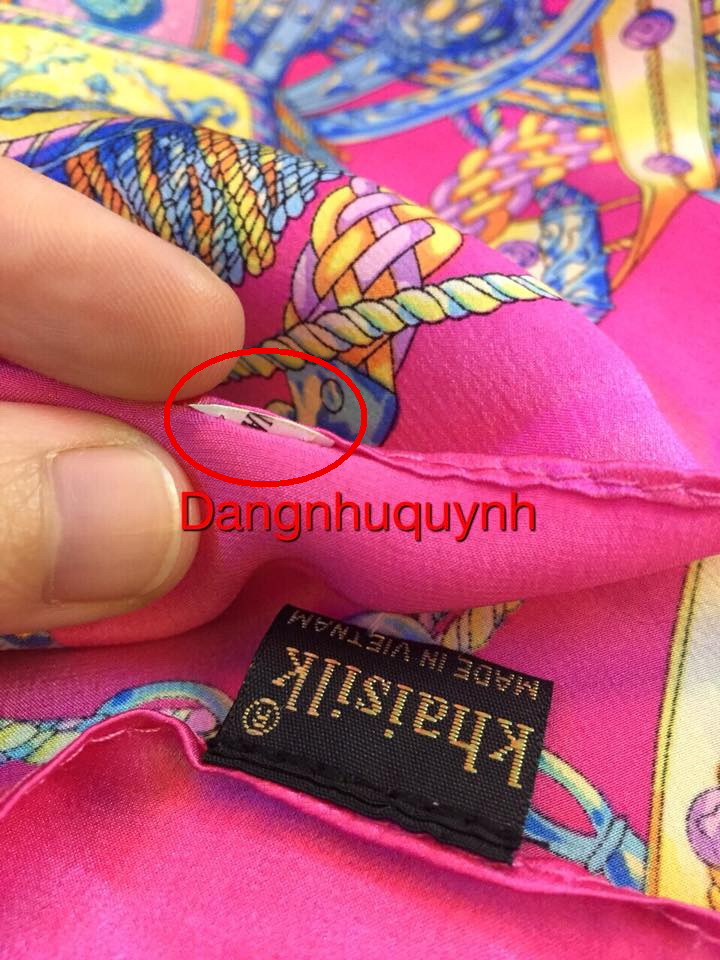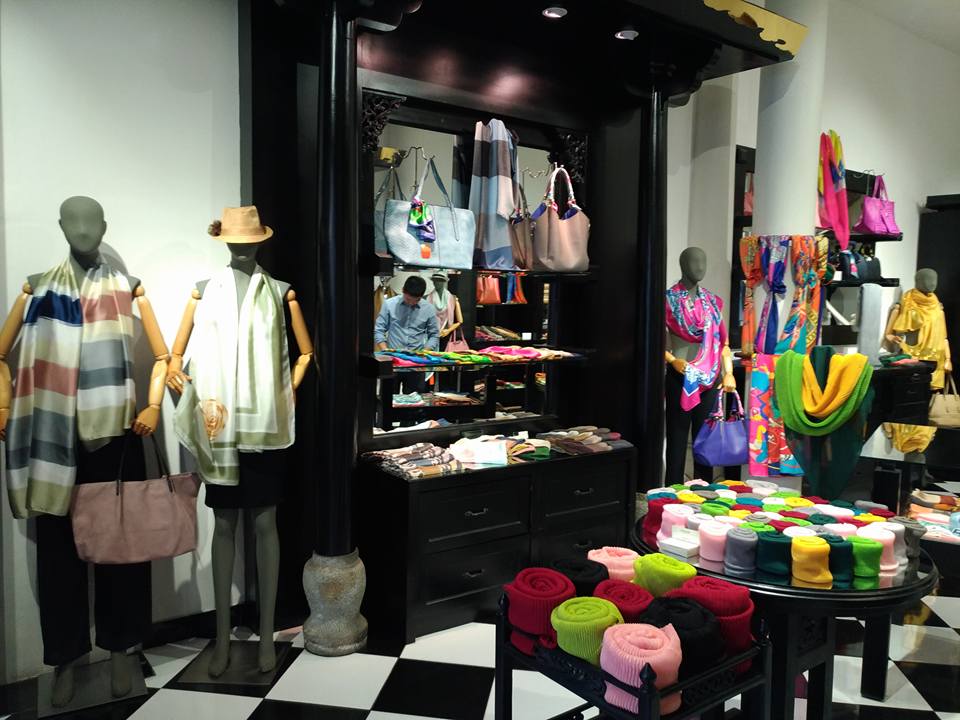The owner of Khaisilk, a premier Vietnamese silk brand, has confessed that half of his scarf merchandise is sourced from China and sold under the guise of made-in-Vietnam labels.
Khaisilk scarves have been a hot topic on Vietnamese social media since earlier this week, when one of the company’s scarves was found bearing both a ‘Made in China’ label and a ‘Made in Vietnam’ one.
The brand’s critics have since alleged that Khaisilk has been deliberately deceiving customers by selling Chinese products using misleading labels.
Founded in the late 1990s, Khaisilk scarves are considered a premium product, popular amongst local luxury consumers and international tourists.
Some Khaisilk products sell for more than VND2 million (US$88) a piece.
The brand owner, Hoang Khai, remained silent on the controversy until late Wednesday, when he admitted in an interview with Thanh Nien (Young People) newspaper that allegations of mislabeling were true.
Khai took the confession one step further by declaring that at least 50 percent of the company’s silk scarves are from China and the other 50 percent are domestically sourced.
One hundred percent of his products, however, are advertised and sold as made-in-Vietnam.
 |
| The scarf with two labels is seen in this photo posted on the Facebook page of Dang Nhu Quynh. |
Label replacing
The story of Khaisilk products carrying two labels was first reported by Vietnamese Facebook user Dang Nhu Quynh on October 23.
Quynh said his brother wanted to buy 60 Vietnamese silk scarves as gifts for his partners and placed an order at the Khaisilk Hanoi Main Store on Hang Gai Street in the Vietnamese capital. The products cost VND644,000 ($28) each.
When the products were delivered on October 17, the buyer discovered that one of them had both ‘Made in China’ and ‘Made in Vietnam’ labels.
“You can clearly see that on the other 59 scarves, the ‘Made-in-China’ label was carelessly removed and a ‘Made-in-Vietnam’ label was added,” Quynh wrote.
The buyer requested to make a record of the case and later filed an official complaint to the company headquarters.
The company’s response, as recounted in Quynh’s post, was to double-down on their claim that all 60 scarves were made from “100 percent silk.”
Tran Van Cuong, manager of the Khaisilk Hanoi store, asserted that store employees were only able to secure 59 products for the 60-item order, so they “took one scarf that was still on the sewing machine, pending delivery to another customer, without a careful check.”
The scarf in question, according to Cuong’s account, was part of a 350-item order Khaisilk was to deliver to a Hong Kong customer, which demanded that the products be labeled ‘Made in China.’
Quynh said in his post that he would refrain from commenting on Khaisilk’s response and would instead let readers draw their own conclusions.
As of Thursday morning, Quynh’s viral post had received more than 1,100 likes and 125 shares. He told Thanh Nien that a Khaisilk representative had asked him to remove the post but he turned down the plea.
 |
| The sign (the in red circle) suggesting that the 'Made in China' label has been cut out is seen on a Khaisilk scarf in this photo posted on the Facebook page of Dang Nhu Quynh. |
Chairman broke silence
Hoang Khai, a real estate tycoon and chairman of Khaisilk Group, began his interview with Thanh Nien by saying that he would like to “apologize to customers for the unclear positioning of [his] products.”
Khai admitted that in the 1990s, when the Vietnamese silk sector began its decline, he was forced to turn to the Chinese market for sourcing beautiful products which he believed could be taken as Vietnamese.
The Khaisilk chairman asserted that he was convinced that it was a common practice, saying such brands as Zara and H&M also source products from China and sell under their own brand names to customers worldwide.
He claimed that the practice is ethical as long as product quality is guaranteed.
Consequently, Khai told Thanh Nien that Chinese imports still account for up to 50 percent of the silk scarf stock at Kahisilk stores.
Khai, currently based in Ho Chi Minh City, said the Khaisilk operation in Hanoi is run by a separate entity and he is not charged with overseeing its business.
He admitted that he has paid little attention to his silk business since the Khaisilk Group began expanding into real estate, restaurants, and trade centers.
He also conceded that that the root of the issue was his failure to separate Chinese-imported and Vietnamese-made products in his stores.
“We will recall the entire batch of [made-in-China] products and develop a tighter brand and a better product management system,” he told Thanh Nien.
“Following the recall, we guarantee that the products will be labeled separately, just like big brands.”
Khai said he acknowledged that the ‘two-label’ scandal has hugely affected his brand’s reputation, adding that “this is the price [they] have to pay.”
“We will try to change and win back faith from customers,” he said.
Like us on Facebook or follow us on Twitter to get the latest news about Vietnam!





















































